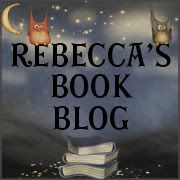 I loved Dori Jones Yang's book Daughter of Xanadu, so I was excited to learn that there would be a sequel, Son of Venice. Today, I have a guest post from Dori about the new book. It was supposed to go up a couple of days ago - sadly, Blogger schedule posting did NOT work and my laptop I took on my trip BROKE - so I really had NO luck!! But here it is - better late than never, I suppose!
I loved Dori Jones Yang's book Daughter of Xanadu, so I was excited to learn that there would be a sequel, Son of Venice. Today, I have a guest post from Dori about the new book. It was supposed to go up a couple of days ago - sadly, Blogger schedule posting did NOT work and my laptop I took on my trip BROKE - so I really had NO luck!! But here it is - better late than never, I suppose! What makes for a great love story? Yes, a gorgeous, complex woman and a fascinating, attractive guy. But the real key may surprise you: obstacles.
What makes for a great love story? Yes, a gorgeous, complex woman and a fascinating, attractive guy. But the real key may surprise you: obstacles.Without obstacles, there is no love story. Sad, isn’t it? But if the two young lovers have nothing standing in their way, nothing keeping them apart, there is no story. Just ‘happily ever after’ from page one. Bo-ring.
So the story-teller must always find something to keep the lovers apart. For stories set in the present, it’s often complex. Sometimes the barriers are in her mind—such as pride and prejudice. Other times they are jealous friends—or third parties in a love triangle.
Love stories set in the past have an easier time finding obstacles. It’s always the parents and society, isn’t it? We all know that in the olden days—and until recently in Asia—parents chose the marriage partner. Young men and women were not allowed to meet and hang out and decide whom they wanted to marry.
In my books, Emmajin, the high-born daughter of the powerful Great Khan, is not supposed to fall in love with Marco Polo, a lowly merchant from a distant and backward place, Europe. In her world, marriages are arranged for royal daughters and granddaughters in order to create alliances for the Khan.
But here’s something I didn’t know till I started researching Daughter of Xanadu, which is set in the 13th century. Today’s notions of romantic love started in Europe in the Middle Ages. They called it courtly love. A man would wear a lady’s scarf into battle and swear his devotion to her, even if she was married. Love didn’t necessary lead to marriage. In fact, often it didn’t.
Does love naturally lead to marriage? In this day and age, we’re absolutely certain it does. But doesn’t marriage weaken that intensity that comes from the forbidden and distant lover? This is why most love stories end at the wedding.
Which is the best outcome for romantic love: a short time together, with intensity and passion? Or a lifetime together, with discussions about housekeeping and laundry, diapers and kitty litter?
Most of us are absolutely certain we know the right answer to that question, too. My books, I hope, challenge our dearly held beliefs.
What do you think?
For more about Daughter of Xanadu and its sequel, Son of Venice, see www.dorijonesyang.com.











1 comment:
As a reader, I agree completely. As a writer, I might have to do some more editing on a certain romantic relationship...
Post a Comment